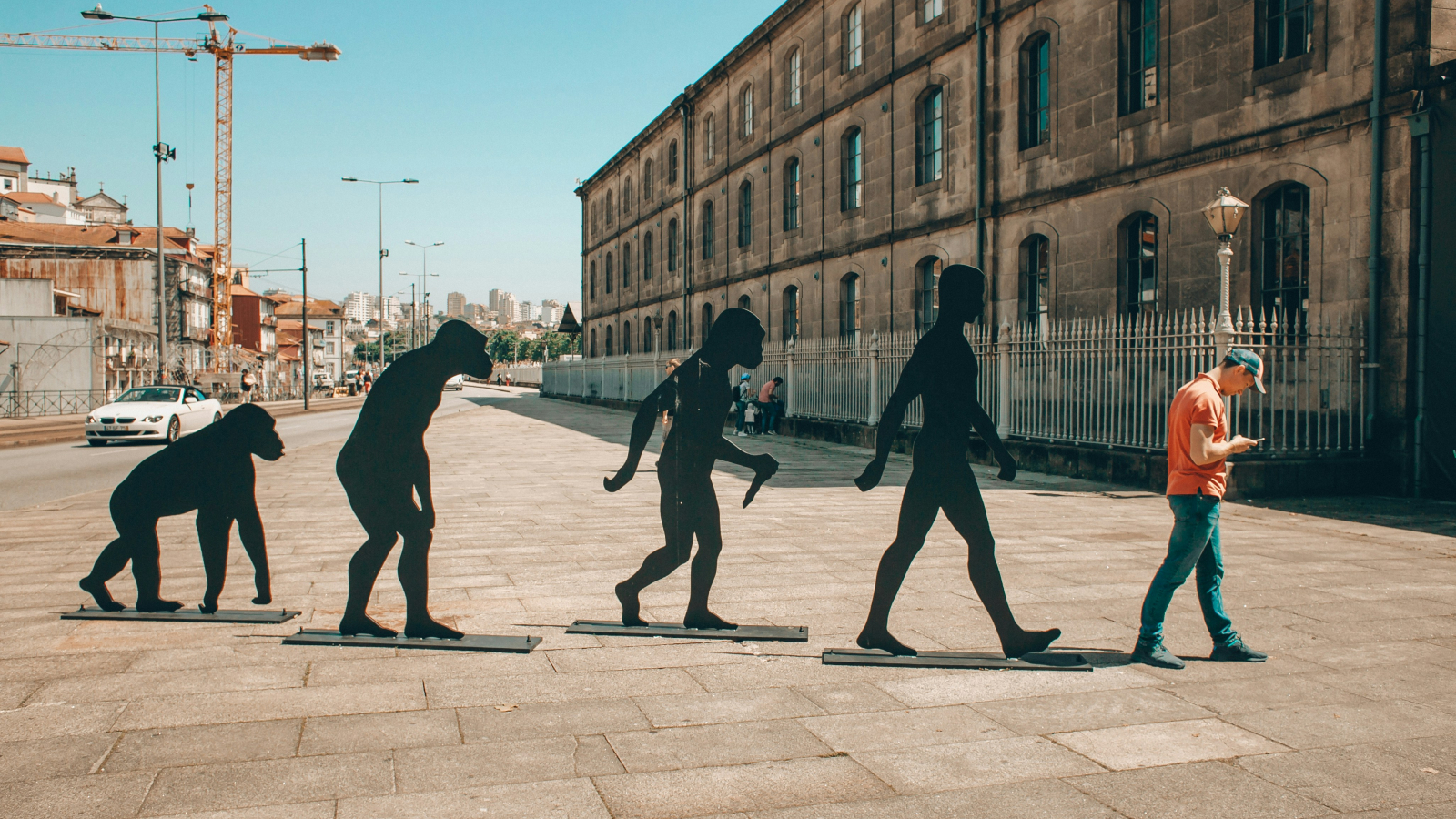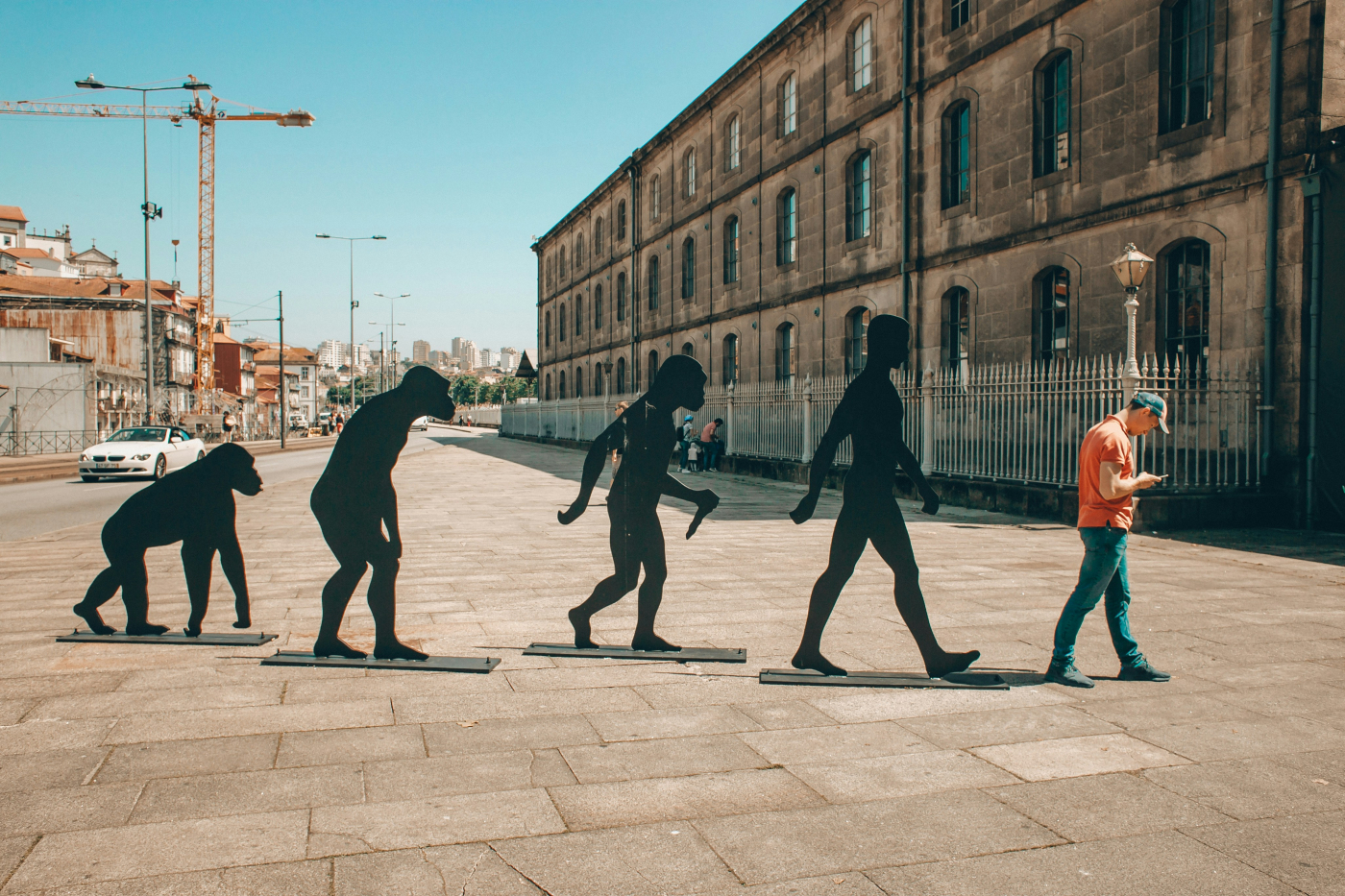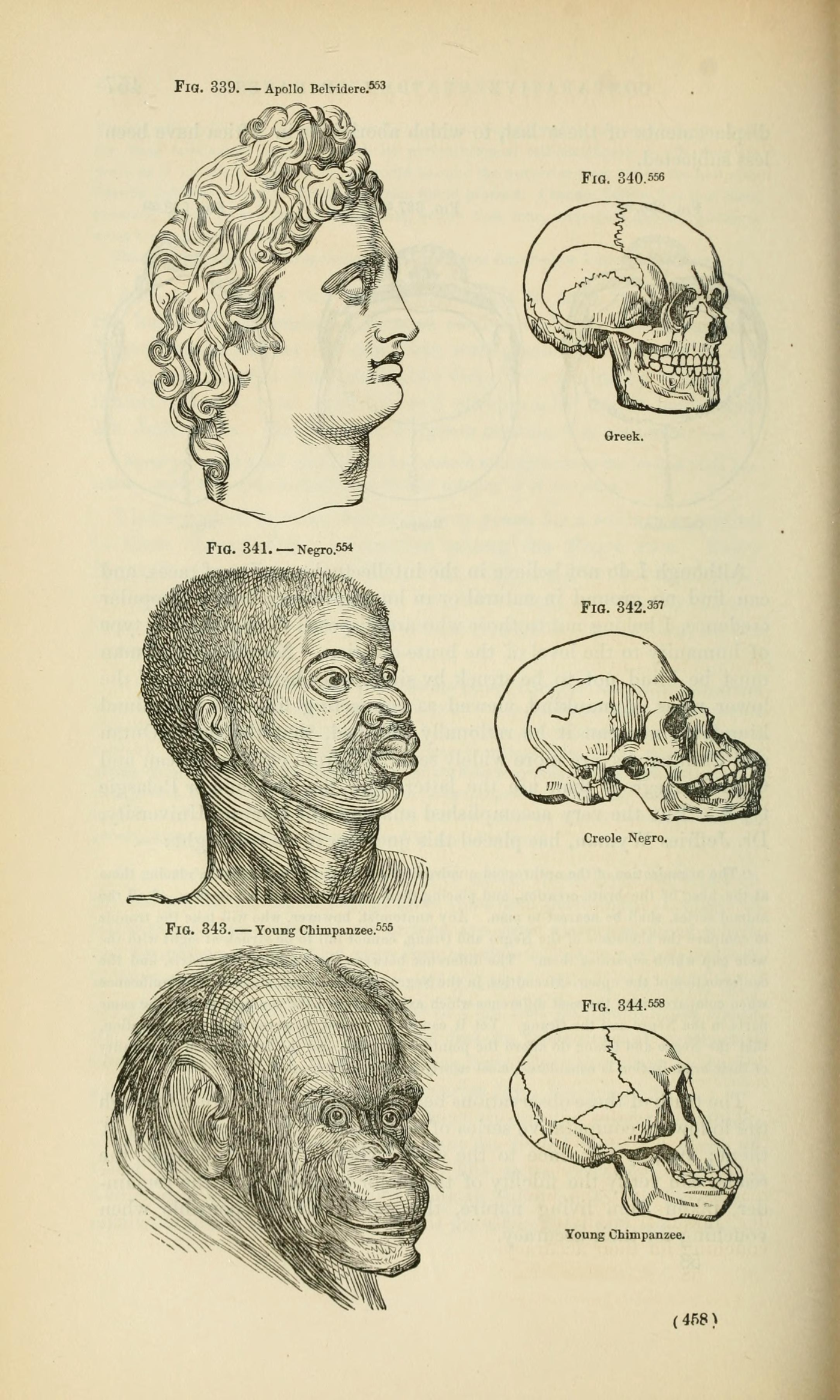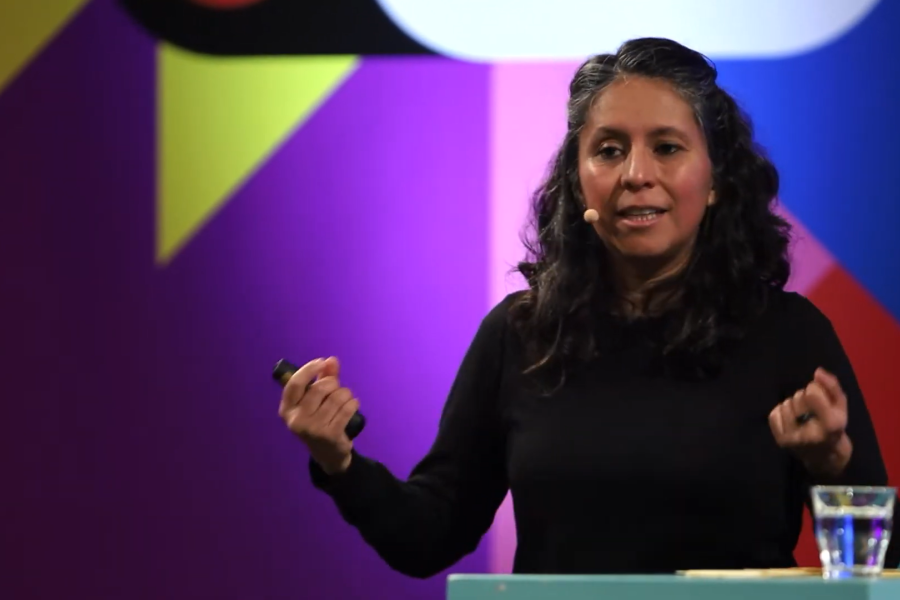Progress in evolutionary biology? The West is not the best

Are popular illustrations of evolution like the one below familiar to you? In her lecture, dr. Abigail Nieves Delgado described the history of evolution and the struggle of science through the centuries to correctly study and understand the intricate process with relation to human diversity. Central to this struggle is the complicated relationship between evolution and progress, as described by Nieves Delgado. "Evolution is often implicitly connected to progress. Different stages of evolution are portrayed as if these are walking towards an end-goal: the human being." This is also seen in the illustration and creates the idea that evolution is a directional process, in which organisms that appear later in time will always be more advanced than earlier ones.

Even Charles Darwin, the famous founder of the evolution theory, struggled with the relationship between evolution and progress. Darwin wrote a note to himself in the margin of his copy of "Vestiges of the Natural History of Creation" by Robert Chambers in 1844, stating: "Never use the words higher or lower," as an attempt to remind himself how to properly understand changes in organisms. Perhaps Darwin lost track of this note, as he contradicted it later on, speaking of evolution as "progressive development" and "progress towards perfection." Still, there were also scientists with opposing views to progressive evolution, including science historian William Provine, who stated that "there is no ultimate basis in the evolutionary process from which to judge true progress."
While scientists were still debating the link between evolution and progress, they could not prevent the ways their scientific methods were increasingly used for the study and portrayal of different human populations. The understanding of evolution as a directional process working towards progress led to the idea that some human populations are more advanced than others. Near the start of the 19th century, German anatomist Johann Blumenbach was one of the first to explore human diversity by assessing skull anatomy and classified the Caucasian skull as "the most beautiful and best formed of men. They were the original and greatest race." The Caucasian skull quickly became a reference point for perfection and other races were in a way less perfect, again echoing a sense of progression. Nieves Delgado is worried about such developments: "Even nowadays, the category of Caucasian is still used in scientific literature, but are we aware of the way this label was established?"

Moths to the rescue
So what is the answer? Is there progress in evolution? Nieves Delgado provides an answer to the complex mystery of evolution and progress with a wondrously simplistic example of evolution: the peppered moth. This moth is mainly found in forest areas in Asia, Europe, and North America. First, the species was mainly represented by populations of light moths, a color that provided more opportunities to survive as it camouflaged them against white tree trunks upon which they rested. Over time, more populations emerged with dark moths, as a response to a color change of the trees due to increasing levels of black smoke following the Industrial Revolution. The example is strikingly illustrating the idea that evolution is not the same as progress. "Can we say that the dark moth is more advanced than the other? The answer from today's evolutionary framework is no. It makes no sense to speak of progress. We need to understand that these changes happen because of environmental changes, not because of some directionality in evolution."
Now that we know that evolution is not directly linked to progress, one would expect that the discussion of ideas like progress and race would stop. Well, reality seems to be different. Science continued its struggle to accurately study and describe populations and there are still significant traces of the idea of progress. For example, racial divisions were popularized in this illustration from a textbook for geography in secondary school in 1950 (illustration from this article). Different human populations are clearly linked to distinct lifestyles and the sense of progression is still present here, as white people live in large cities with cathedrals and mansions. The other two groups have to survive in chaotic, overpopulated streets with wooden houses or tiny clay huts in the jungle. The conclusion of the textbook is rather predictable: the white population is the most civilized and all other populations are relegated to lower ranks of civilization.
The influence of colonial thinking is also apparent in more recent years. Even the world-renowned Human Genome Project, a project deciphering the entire human genetic code published in 2003, was unable to make a change. The initiative showed how extremely genetically similar we are, but despite this, scientists maintained their interest in what makes human populations genetically different from each other. Nieves Delgado explains: "From that minimal part of our genetic code that makes us different, we wanted to know what it is." Besides, racial bias is found in many forms in medical practices. "A study in 2016 showed that some physicians have a false belief that black people's skin is thicker than white people's skin," illustrates Nieves Delgado. "As a result, physicists use different pain assessments and treatment recommendations, which is really outrageous."
Our historical misunderstanding of evolution and progress has clearly fostered many racial classifications and stereotypes to describe some human populations as more civilized and advanced than others. So, what can we do to take a step into the right direction? Nieves Delgado does a strong appeal to the responsibility of everyone. "We need to become more aware of pervasive racialization in our society and evaluate our own beliefs: "am I assuming an idea of progress in biology when looking at different cultures myself?" In our Western society, we also need to start acknowledging and appreciating the diversity of cultures, lifestyles, and human beings without setting our society as the ideal standard."







